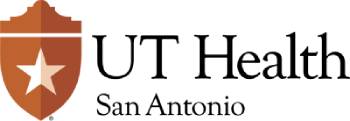Teenage mothers at the Seton Home residential facility learn about breastfeeding from UT Health Science Center medical and nursing students. Another group of students runs a summer program that encourages kids to make healthy choices in nutrition, fitness, relationships and other aspects of their lives. Still others work in free clinics that provide medical care to the homeless and recovering drug addicts.
All of these efforts and many more are led by the Center for Medical Humanities & Ethics, which spearheads many of the service-learning opportunities available to UT Health Science Center students, serving as a bridge between the university and its community.
For Ruth Berggren, M.D.,director of the Center for Medical Humanities & Ethics, it’s about nurturing students’ innate empathy through years of difficult training, or “keeping the flame alive.” She believes community involvement is one of the best ways to cultivate compassion in future health care providers.
“When students become engaged in problem-solving within the community, they develop a real-world understanding of the social determinants of health,” Dr. Berggren said. “Empathy becomes a reality for them in a way that cannot be replicated in a classroom setting. Ethical decision-making capacity is enhanced, and many students find deeper personal meaning in their career choices.”
The Center for Medical Humanities & Ethics also mentors students in global health, giving them opportunities to serve communities in resource-poor settings in Ethiopia, Haiti and even the Texas-Mexico border. Such experiences are transformational, and the Center recognizes the importance of students being fully engaged members of communities locally and abroad.
The Center’s efforts led to national recognition: The UT Health Science Center was named to the 2009 President’s Higher Education Community Service Honor Roll.
